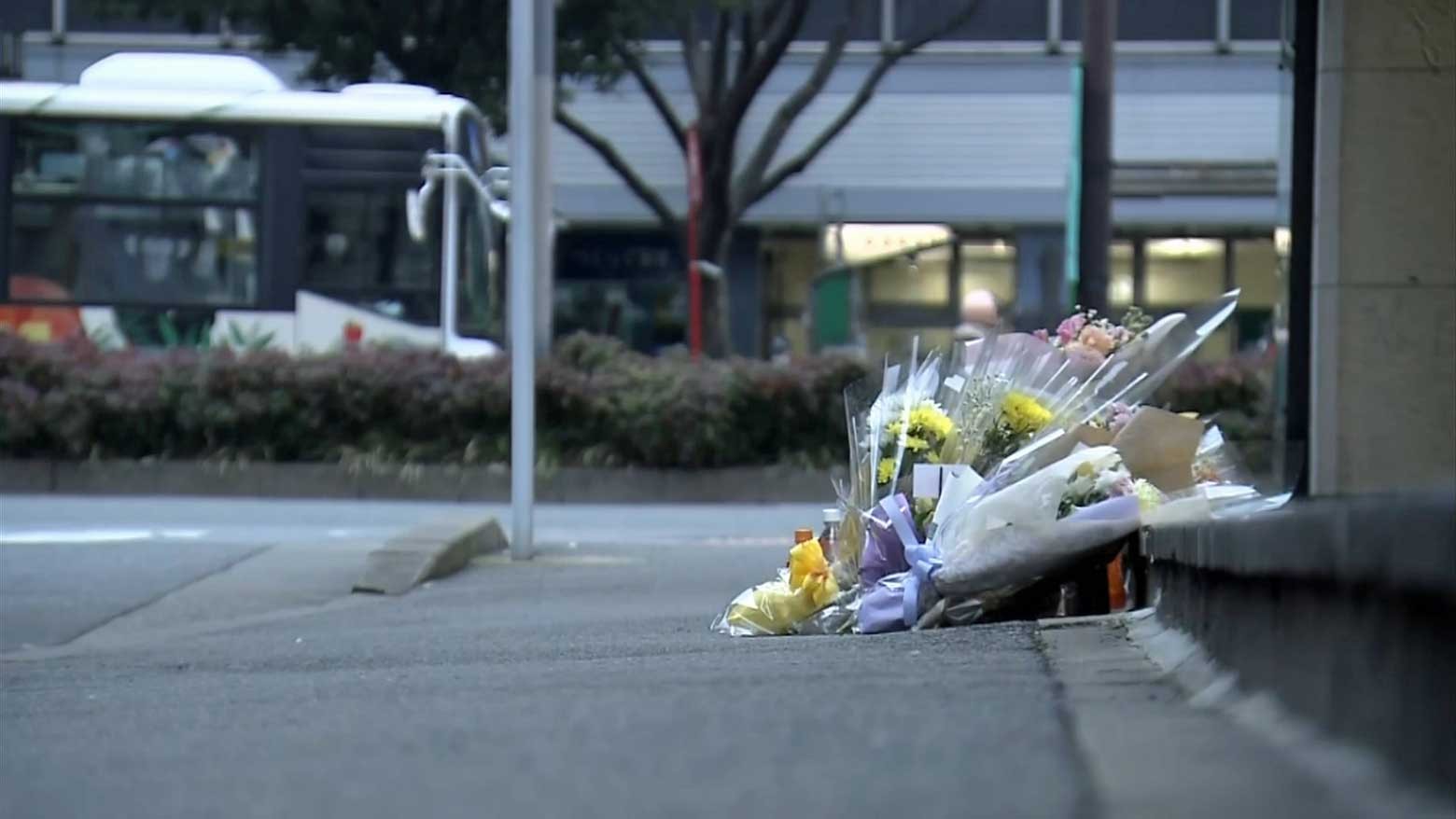Kawano Miki, 38, was on her way home in the Hakata district when she was stabbed to death. Two days later, police arrested her former boyfriend Terauchi Susumu on suspicion of murder. The 31-year-old restaurant worker allegedly stabbed her more than a dozen times and has apparently confessed to the killing.
Security cameras near the crime scene captured the two walking and apparently talking. Terauchi suddenly pulls at Kawano, before stabbing her.

Victim contacted police multiple times
Investigators say the two got to know each other while working at restaurants within the same group. They dated for six months through last fall.
Kawano had consulted with the police multiple times since October last year. She first told the police that he had taken her cellphone and that she wanted to break up with him.
She sought help again three days later. The police confirmed text messages from Terauchi saying things such as, "I refuse to break up with you" and, "If you make me angry, I won't forgive you."
The police gave him a warning and advised Kawano to temporarily move home and change job. Terauchi appeared compliant at the time, according to the police.
In late November, Kawano told police several times that Terauchi had shown up where she worked and pressed her to explain why she had reported him. He also called her cellphone and her workplace. The police issued a restraining order against him based on the anti-stalking law.
The police started patrolling areas near her home and stayed in contact with her on a regular basis. Kawano was also given an emergency device that sends a distress call to the police at the push of a button.

Ten days before the attack, the police checked in with her and she said that she had had no more trouble.
"The situation may have appeared to have settled down at that point, but he was only feigning disinterest to deflect police attention," says Kobayakawa Akiko, head of an organization that supports the victims of stalking and which counsels stalkers.
Kobayakawa says most stalkers modify their behavior after getting a warning or a restraining order, although it doesn't quite work for some impulsive perpetrators who cannot control themselves rationally.
"When a stalker doesn't change their behavior after getting a warning or a restraining order, it's important for the police to stay in close contact with the offender so they are aware that they are being watched, and also to work with psychological experts to offer treatment," she says.

Anti-stalking law fails to prevent killings
The anti-stalking law came into force in Japan 2000, following the murder of a female university student in the city of Okegawa, Saitama Prefecture, near Tokyo. The woman was killed by a man who had continually harassed her after she refused to date him.
According to National Police Agency statistics, there were nearly 20,000 consultations concerning stalking in 2021. Approximately 2,500 people were questioned or taken into custody by police in connection with the anti-stalking regulation or other laws.
The offenders were 75 percent male, and more than 45 percent of stalking victims were targeted by a partner or ex-partner.
The law has been amended several times, including expanding the scope of acts covered by it, such as sending emails and wandering around the victim's neighborhood. But the crimes have continued.
In 2011, a man killed two relatives of a former girlfriend in Nagasaki Prefecture. A high school student in Tokyo was murdered by a former boyfriend in 2013. A female university student who was performing as a singer was stabbed by an "obsessive" fan in 2016 and seriously injured.
In those cases, the victims and their family had sought the protection of the authorities prior to the incidents.
A restraining order, which was issued in the latest stabbing case, bans an alleged stalker from approaching a victim. Violating the legal directive can result in a criminal punishment. Once the order is in effect, the police patrol the victim's neighborhood and offer consultations. The order remains in effect for one year.
The law offers a certain level of deterrence, but shortcomings have too often been tragically exposed.

